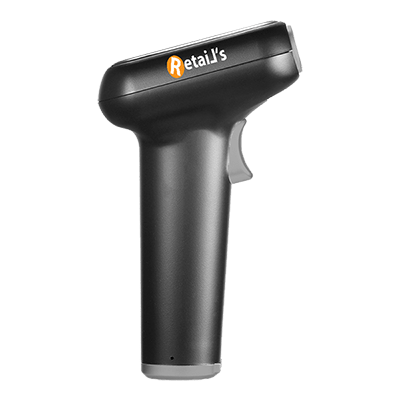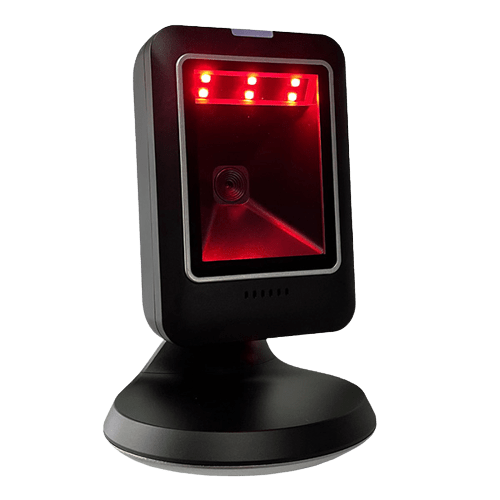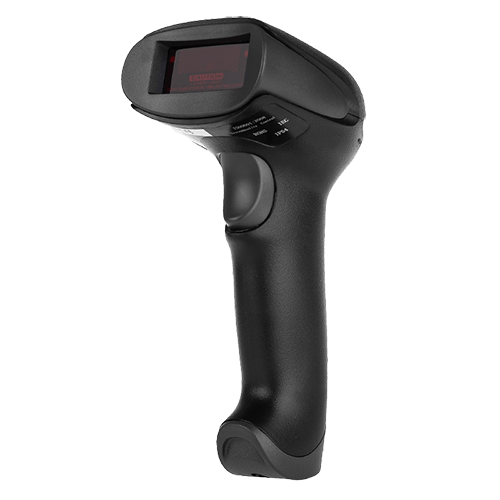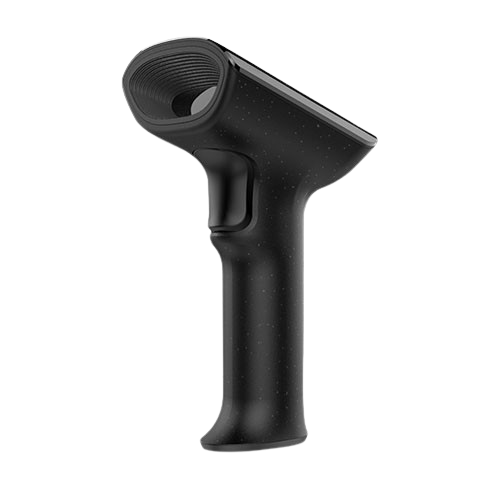Retails Barcode Scanner
Retails 1D and 2D Barcode Scanner: Enhancing Efficiency and Versatility
In the dynamic world of retail, speed, accuracy, and versatility are key to staying competitive. One essential tool that has revolutionized the retail industry is the barcode scanner. Barcode scanners enable businesses to efficiently capture and interpret product information encoded in barcodes. In this article, we will explore the benefits, types, and considerations when choosing a 1D and 2D barcode scanner for your retail operations.
Retails Barcode Scanner
Barcodes have become an integral part of the retail landscape, providing a standardized method for identifying and tracking products. Barcode scanners are electronic devices that utilize optical sensors to read barcodes and translate them into readable data. These devices have significantly streamlined retail operations, improving efficiency and reducing errors.
The Difference Between 1D and 2D Barcodes
Before delving into barcode scanners, it’s essential to understand the difference between 1D and 2D barcodes.
1D Barcodes
1D barcodes, also known as linear barcodes, are the traditional barcodes consisting of a series of parallel lines of varying widths. These barcodes encode product information in a horizontal format, representing data such as product numbers, prices, or inventory codes.
2D Barcodes
2D barcodes, on the other hand, are more advanced and capable of encoding larger amounts of information. Unlike 1D barcodes, 2D barcodes use a matrix of dots, squares, or other geometric patterns to store data. They can be scanned horizontally and vertically, enabling the storage of complex data such as product descriptions, website URLs, or multimedia content.
Benefits of 1D and 2D Barcode Scanners
Barcode scanners offer numerous benefits to retailers, regardless of whether they are scanning 1D or 2D barcodes. Let’s explore the advantages of using barcode scanners in a retail environment.
1. Improved Efficiency
Barcode scanners dramatically accelerate the checkout process by quickly scanning barcodes and retrieving product information from a database. This efficiency reduces waiting times, enhances customer satisfaction, and allows employees to focus on providing excellent service.
2. Enhanced Accuracy
Manual data entry is prone to human errors, leading to incorrect product information and potential inventory discrepancies. Barcode scanners eliminate this risk by accurately capturing and decoding barcodes, ensuring that the correct information is recorded every time.
Retails Barcode Scanner
This accuracy improves inventory management and minimizes errors in pricing and stock control.
3. Versatility
Barcode scanners that can read both 1D and 2D barcodes offer increased versatility to retailers. While 1D barcodes are commonly used for standard product identification, 2D barcodes provide the capability to store additional data, such as expiration dates, serial numbers, or batch information. This versatility opens up opportunities for implementing loyalty programs, managing complex inventories, and supporting traceability requirements.
4. Real-Time Data Insights
Barcode scanners, when integrated with a point-of-sale (POS) or inventory management system, provide real-time data insights. Retailers can access up-to-date information on sales, stock levels, and product performance. This data enables informed decision-making, facilitates demand forecasting, and supports efficient restocking processes.
Types of Barcode Scanners
When choosing a barcode scanner for your retail operations, it’s important to consider the specific requirements of your business. Here are the main types of barcode scanners available:
1. Handheld Barcode Scanners
Handheld barcode scanners are the most common type and offer flexibility in terms of portability and ease of use. These scanners can be wired or wireless, allowing employees to move freely around the store while scanning items. They are suitable for various retail applications, from small boutiques to
large supermarkets.
2. Presentation Barcode Scanners
Presentation barcode scanners, also known as on-counter or fixed-mount scanners, are designed for high-volume scanning at a fixed location, such as a checkout counter. They are stationary devices that automatically scan barcodes as items are passed in front of them. These scanners are ideal for busy retail environments with a large number of transactions.
3. Mobile Barcode Scanners
Mobile barcode scanners utilize smartphones or tablets with built-in cameras to scan barcodes. With the help of specialized scanning apps, these devices can decode both 1D and 2D barcodes. Mobile scanners provide convenience and mobility, allowing employees to conduct inventory checks, price comparisons, or product searches from anywhere in the store.
4. Wearable Barcode Scanners
Wearable barcode scanners are worn on the hand or finger, providing a hands-free scanning experience. These devices are commonly used in logistics or warehousing environments, but they can also be beneficial in retail settings where mobility and efficiency are critical.
Considerations When Choosing a Barcode Scanner
To select the most suitable barcode scanner for your retail business, consider the following factors:
1. Scanning Performance
Evaluate the scanning performance of the barcode scanner, including its scanning speed, accuracy, and ability to read damaged or poorly printed barcodes. Choose a scanner that can handle the expected volume of scans in your retail environment.
2. Connectivity Options
Consider the connectivity options of the barcode scanner. Wired scanners connect directly to a computer or POS system through a USB or serial port, while wireless scanners offer Bluetooth or Wi-Fi connectivity. Assess your infrastructure and choose the option that best suits your setup.
3. Durability and Reliability
Retail environments can be demanding, so it’s crucial to select a barcode scanner that is durable and reliable. Look for scanners with rugged construction that can withstand drops, spills, and repetitive use without compromising performance.
4. Ease of Use
Ensure that the barcode scanner is user-friendly and easy to operate. Features such as plug-and-play functionality, intuitive controls, and ergonomic design can enhance the user experience and minimize training requirements for your staff.
How to Use a Barcode Scanner
Using a barcode scanner in a retail setting is straightforward. Here are the general steps to follow:
Install the Scanner Software: If required, install any necessary software or drivers for the barcode scanner on your computer or mobile device.
Connect the Scanner: Connect the barcode scanner to your device using the appropriate cable or wireless connection.
Position the Scanner Properly: Hold the handheld scanner or position the fixed-mount scanner so that the barcode is within the scanner’s range and aligned with the scanning window.
Scan the Barcode: Aim the scanner at the barcode and press the trigger or button to initiate the scan. The scanner will emit a light or beep to indicate a successful scan.
Interpret the Scanned Data: The scanned barcode data will be transmitted to your computer or mobile device, where it can be processed or stored in your retail system.
Tips for Maintaining a Barcode Scanner
To ensure the longevity and optimal performance of your barcode scanner, consider the following maintenance tips:
- Regularly clean the scanning window using a soft, lint-free cloth to remove any smudges or debris that may affect scanning accuracy.
- Protect the scanner from physical damage by using protective cases or covers when not in use.
- Avoid exposing the scanner to extreme temperatures or excessive moisture.
- Follow manufacturer guidelines for battery maintenance and charging (if applicable) to maximize battery life.
- Periodically check for firmware updates provided by the scanner manufacturer to ensure compatibility and access to the latest features.
Conclusion
Barcode scanners have revolutionized retail operations by improving efficiency, accuracy, and data insights. Whether scanning
1D or 2D barcodes, these devices streamline processes and enhance customer experiences. When choosing a barcode scanner, consider factors such as scanning performance, connectivity options, durability, and ease of use. Remember to maintain your barcode scanner properly to ensure optimal performance and longevity.
Barcode scanners are indispensable tools for modern retailers, empowering businesses to streamline operations, reduce errors, and gain valuable insights. By leveraging the power of barcode scanning technology, retailers can stay ahead of the competition, deliver exceptional customer service, and achieve operational excellence.
FAQs
- Are barcode scanners compatible with my existing retail software?
Most barcode scanners are compatible with standard retail software systems. However, it’s always recommended to check the compatibility of the barcode scanner with your specific software before making a purchase.
- Can barcode scanners read damaged or worn-out barcodes?
Modern barcode scanners are designed to read barcodes even if they are damaged or poorly printed. However, the scanning performance may vary depending on the quality of the barcode and the capabilities of the scanner. It’s advisable to test the scanner’s performance on different barcode types before making a decision.
- Can barcode scanners be used for inventory management?
Absolutely! Barcode scanners are excellent tools for inventory management. By scanning barcodes, retailers can easily track stock levels, monitor product movement, and streamline the reordering process. This helps prevent stockouts and overstock situations, optimizing inventory turnover and minimizing carrying costs.
- Do I need specialized training to use a barcode scanner?
Barcode scanners are designed to be user-friendly and intuitive. In most cases, minimal training is required to operate a barcode scanner effectively. However, it’s a good practice to provide basic training to your staff to ensure they understand the scanning process and any specific features of the scanner.
- Can barcode scanners be used in industries other than retail?
Absolutely! While barcode scanners have become synonymous with retail, their applications extend to various industries such as healthcare, logistics, manufacturing, and more. Barcode scanners offer efficiency, accuracy, and versatility in data capture, making them valuable tools in a wide range of business settings.





